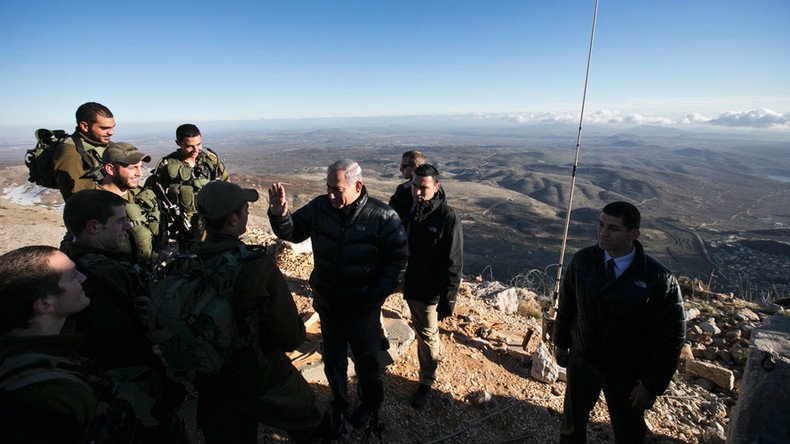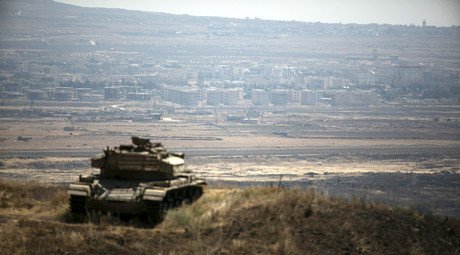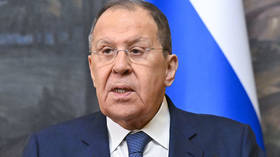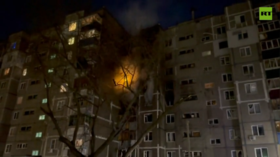Netanyahu vows Golan will ‘forever’ remain Israel’s at 1st ever cabinet meeting in occupied land

Prime Minister Benjamin Netanyahu said Tel Aviv will never withdraw from the Golan Heights, a strategic area captured from Syria in 1967, claiming it has been in Israeli hands “since antiquity.”
While the UN-led peace talks on the future of war-torn Syria take place in Geneva, Netanyahu has called the first-ever cabinet meeting on the Golan Heights to declare that Tel Aviv will not take a single step back from the annexed region.
“It is time that the international community recognized reality,” Netanyahu was quoted as saying by The Times of Israel.“Whatever happens on the other side of the [Syrian] border, the border itself will not move.”
“And secondly,” Netanyahu added, “the time has come after 40 years for the international community to finally recognize that the Golan Heights will remain under Israeli sovereignty forever.”
Netanyahu urges Obama to ‘think different’ on Golan Heights annexation https://t.co/c9bZb7gqMmpic.twitter.com/rdiM0XuJLe
— RT (@RT_com) November 11, 2015
The strategically-important Golan Heights stretch from the Syrian border to that of Israel, with two-thirds of the area being under Israeli occupation following the 1967 Six Day War. In 1981, Israel annexed the Golan, extended its jurisdiction throughout the territory and began massive construction of Jewish settlements.
Speaking in the settlement of Maale Gamla in the occupied Golan Heights, next to an archaeological excavation site where the Jews fought against the Roman Empire nearly 2,000 years ago, Netanyahu used the historic legacy of the area to back up his claims.
“I convened this celebratory meeting in the Golan Heights to send a clear message: The Golan will always remain in Israel’s hands. Israel will never withdraw from the Golan Heights.
“The Golan was an integral part of the Land of Israel in ancient times. That is documented by dozens of ancient synagogues around us. And the Golan is an integral part of the State of Israel in the present time.”
Besides the claimed ancient legacy, the Golan Heights have an enormous economic importance for Israel. Last October, an Israeli business website Globes suggested that the oil deposits on the Golan would make the tiny country self-sufficient for many years to come.
Potential production could reach billions of barrels. Israel consumes 270,000 barrels per day. It also currently imports up to three quarters of its oil from the semi-autonomous Kurdish region in Iraq, the Financial Times reported in August last year.
The annexation of the Golan has never been accepted by the international community, and the Israeli leadership sees the war in neighboring Syria as a chance to cement the status quo in the area. Last November, The Economist reported that an influential lobbying group has been urging the Israeli government to demand international recognition of its control over the Golan for “having to tolerate” the Iran nuclear deal.
The lobbyists’ advisory board pushing for extensive oil production at the Golan included former US vice-president Dick Cheney and the media tycoon Rupert Murdoch, according to The Economist.
On the Arab side, the 1967 occupation of the Golan led to a large-scale humanitarian disaster. Many Syrian cities and villages have been effectively depopulated, with up to 130,000 forced to flee from their homes. In 2010, almost 40 years into the occupation, Israeli newspaper Haaretz reported that many Syrian towns, farms and villages – flourishing before the 1967 war – became deserted, crumbled over the years or were devastated by the IDF during live-fire exercises.














